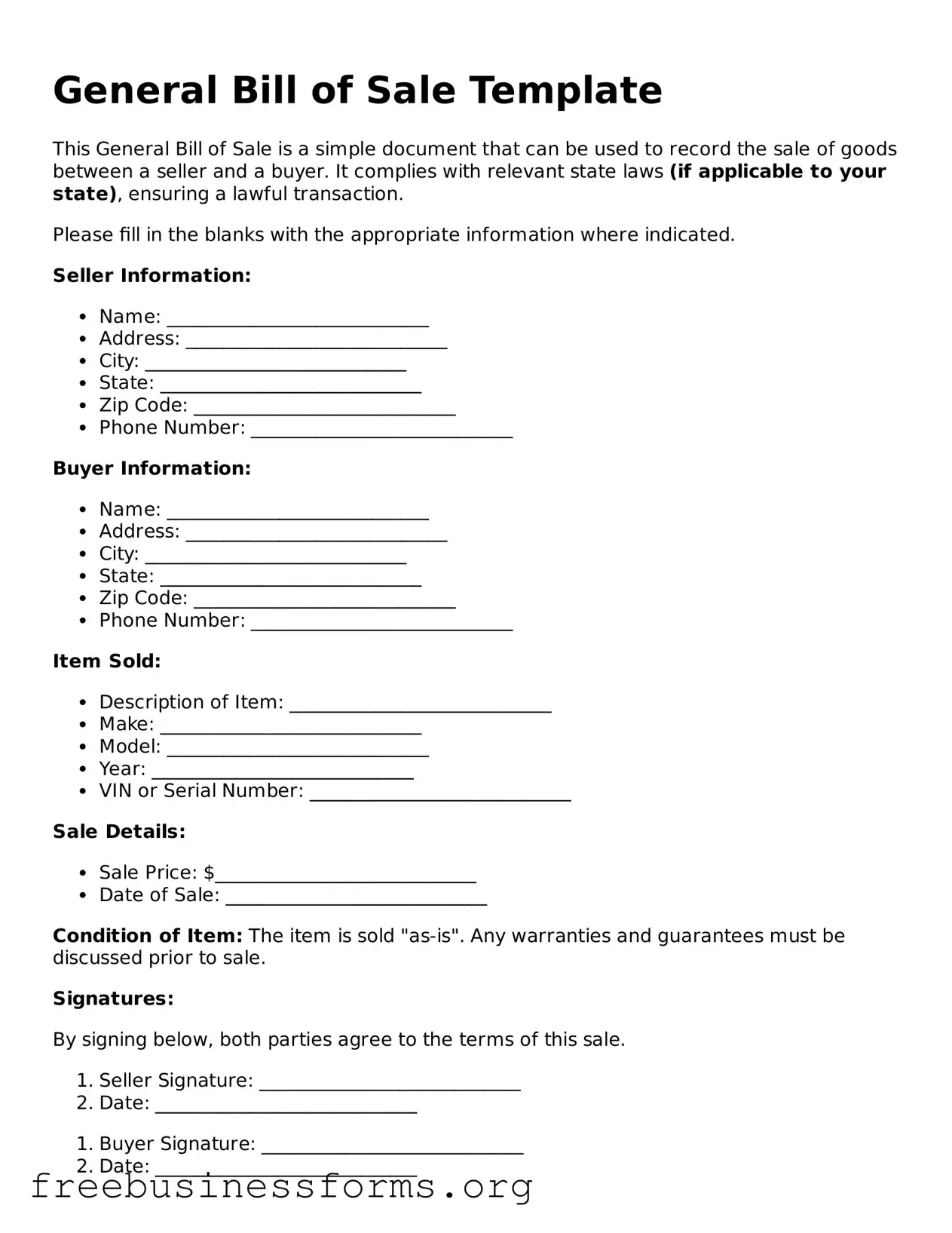Official General Bill of Sale Form
A General Bill of Sale is a legal document that records the transfer of ownership of personal property from one party to another. This form serves as proof of the transaction and outlines important details such as the item description, sale price, and the parties involved. Understanding how to properly complete this form can help ensure a smooth transfer and protect the interests of both the buyer and seller.
Open Form Here

Official General Bill of Sale Form
Open Form Here

Open Form Here
or
↓ PDF File
Quickly complete this form online
Complete your General Bill of Sale online quickly — edit, save, download.